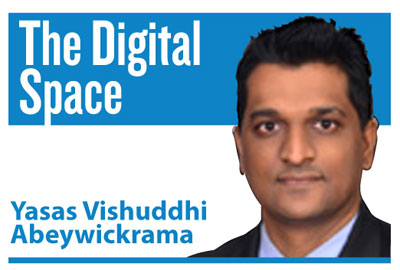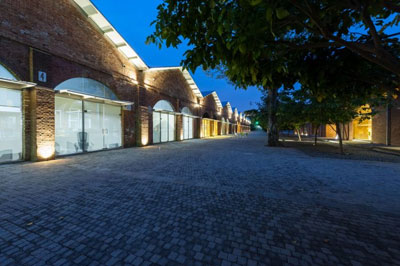Understanding the Digital Space
View(s):Trace City is essentially an IT park where companies come in and use on rent the established infrastructure facilities. It is a common service around the world so that services companies such as those which are in ICT do not have to worry too much about construction of office space, their maintenance and the upkeep. These kinds of parks can be found around the world, and helps IT companies to quickly start operations or expand operations by moving into an existing infrastructure.
The Orion City in Colombo 9 is one such IT park and is also the largest IT Park in Sri Lanka. It is currently under a massive development phase with new towers coming up as a result of the demand as well as the aspirations of the growing knowledge services sector.
The industry currently marks nearly US$1 billion in exports for Sri Lanka through ICT services, Business Process Outsourcing (BPO) and knowledge-based services. It is expected to grow up to $ 5 billion with an increase in the staff from the current number of 75,000 to 200,000 over the next five years.
Therefore, there is no doubt that these infrastructure facilities need to become available. If not, these new sectors cannot be developed. Investments can’t be attracted. International clients won’t be impressed. Let’s keep in mind, the knowledge services sector is a global business.
Aptly named “Technologically Reawaken the Culture of Excellence (TRACE)” in Sri Lanka, TRACE aims to develop Sri Lanka as an innovative hub. The founders of TRACE had two key objectives. The first was to make Sri Lankan exports competitive in the global market. The second was to mitigate the brain drain which had over the years, seen skilled workers move abroad due to higher wages and standards of living. The solution became apparent – there was a need to create an ecosystem that encouraged people to be innovators, entrepreneurs and better professionals.
TRACE’s first project was the creation of TRACE Expert City (TEC), under a MoU between the Ministry of Defense and Urban Development Authority and TRACE, a limited liability not-for-profit-company, in April 2013. Tripoli Market Square, the derelict 18th century British warehouse buildings located in the heart of Maradana, was selected due to its central location in Colombo being a short distance from the financial centre in Fort, major transportation links, as well as close proximity to the port, educational facilities and cultural landmarks.
Phase 1 saw the renovation of two buildings, one was 13 warehouse bays, and the other was a building that had two parallel gable roofs. Under the development, the buildings were redone with fair- faced brick and metal roofing and included courtyards to allow natural light in. The construction was carried out by the UDA. In 2016, development of an additional building was commenced to accommodate demands from existing tenants for more space.

Trace City
Around 1200 people already work here. They are well paid. These young folk love their technology, love their work. The vast majority of them are young Sri Lankans who have studied things associated with ICT, Technology, Business, eCommerce, Engineering or thereabouts.
Many school leavers study IT today, and these are the workplaces they go to, which are high-paid, high- tech and generally with international links. They write code, develop software, they change software programs, they maintain systems, they provide insights, they analyze data, they write reports, they work with lots of data to see patterns and many more. This is what we mean by Knowledge Services.
Further development for the Trace Park had been planned.
But alas! Apparently the cabinet has other plans for the expansion of land for a new railway control facility. Some railway employees jumped the gun by starting to mark the land for this project, and now are threatening to go on strike. In the meantime, the government is re-evaluating the options. There seems to be an alternative land that can be used for the railway project.
Railway projects are definitely very important. I always consider the development of public transport as paramount importance for this country. However, the manner in which the railway employees behave showcases that they do not understand what TRACE is about or what this knowledge services sector is all about.
Some industries are visible. Some like our industry you will not see physical products coming out, because our output is knowledge. Our output is services. Our output is software services that have great value in this digital world.
It is important that masses understand these things. What the new world offers. What the new world needs. And be a little flexible in the way they think and behave, in the way they demand and in the way they raise their kids. Because, the next 100 years would be different from the previous 100 years.
(The writer is the current President of CSSL – Computer Society of Sri Lanka and can be reached at yvabeywickrama@gmail.com).
| New column This is a new column titled, The Digital Space, where matters relating to Information and Communications Technology (ICT), Business Process Outsourcing/Management (BPO/BPM), Knowledge Services, Digital Economy, e-Commerce and all connected issues would be discussed. The first column today is discussing about the tug of war between the UDA and railway authorities in regard to TRACE City, in Colombo 10. | |


